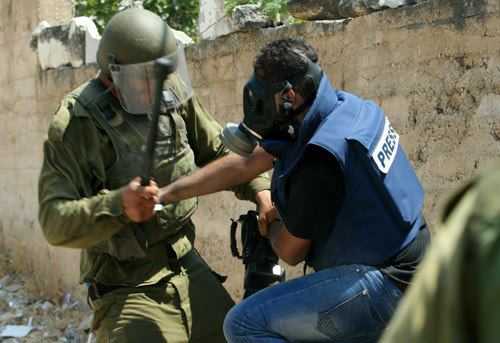Tag: Nablus
-
Kufr Qaddoum: Five arrested in early morning raid
By Leila 10 September 2012 | International Solidarity Movement, West Bank Five men were arrested in an early morning raid on the town of Kufr Qaddoum Tuesday by Israeli occupation forces. At 2:30 a.m. on Tuesday, 100 soldiers stormed the village, apprehending 5 men: Moyyad, 57, Aws, 24, Mohammad, 24, Wassin, 23, and Ahmad, 23.…
-
Kufr Qaddoum resists
By Paddy Clark 31 September 2012 | International Solidarity Movement, West Bank Firas Nahar Jama, 15, was arrested after Israeli soldiers invaded the village of Kufr Qaddoum during the weekly demonstration. Mahmood Nasir Batahan (10) was taken to the hospital after being hit by a tear-gas canister. Two others were treated on the scene after inhaling…
-
Foreign Press Association demands investigation of incident in which soldiers beat journalists
By Emily Greenzweig 20 August 2012 | Haaretz The Foreign Press Association (FPA) is demanding an investigation of the incident in which soldiers beat journalists. The FPA contacted the Prime Minister’s Office and the Israeli army following the incident in which journalists were beaten with sticks. Minister of Public Diplomacy: Expresses doubt concerning journalists who…

